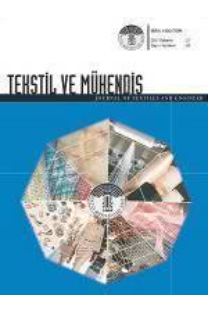Tekstil Endüstrisinin Yünlü Alt Sektöründe Enerji Kullanımı ile İlgili “Lneti” Tecrübesi
Portekiz' de tekstil sektorii imalat sanayiinin briit iiretim deerinin yakl-ik 9630'11 gibi biiyiik bir lusrmnl temsil eder ve ayru zamanda enerjinin %15' ini kullamr. Yiinlii sanayii, toplam iiretimin %10'nu, toplam callganlann Sbl2'si ve enerji tiiketiminde 9614'liik pay1 ile tekstil sektoriiniin iiciincii iinemli alt sektoriidiir; Covilha yiinlii endiistrisi bu alt sektiirh %40'11k k~snun~ temsil etmektedir. Tekstil endiistrisi miimkiin olan en yiiksek kaliteyi elde etmek igin uzun siire gayret etmigtir. Bu amacla hala esas olmakla beraber, yaht fiyatlannln de vaml~ arhgr, enerji kullammm biiyiik bir dikkatle yap~lmaslmn ve tasarmf yollarlnln araghnlmas~nl gerekli hlmlgtlr.
Anahtar Kelimeler:
Tekstil, Endüstrisinin, Yünlü Alt Sektörü
THE LNETI EXPERIENCE ON ENERGY MANEGEMENT IN WOOLLEN SUBSECTOR OF TEHE TEXTILE INDUSTRY
The textile sector in Portugal represents about 30% of the gross value of production in the manufacturing Industry and also accounts for 15% of the energy consumption. The woollen subsector of the textile industry is third in importance, with about 10 per cent of total production, 12 per cent of the number of employees and 14 per cent of energy consumption; the Covilha woollen industry represents about 40 per cent of the national total for this subsector. For a long time the textile industry has been de voted to obtaining the highest possible standards of quality. While this objective still remains essential, the continuous increase in the price of fuels has made it necessary that a greater attention should be paid to energy consumption and ways of achieving savings.
Keywords:
LNETI, EXPERIENCE, ENERGY MANEGEMENT,
- ISSN: 1300-7599
- Yayın Aralığı: 4
- Başlangıç: 1987
- Yayıncı: TMMOB Tekstil Mühendisleri Odası
